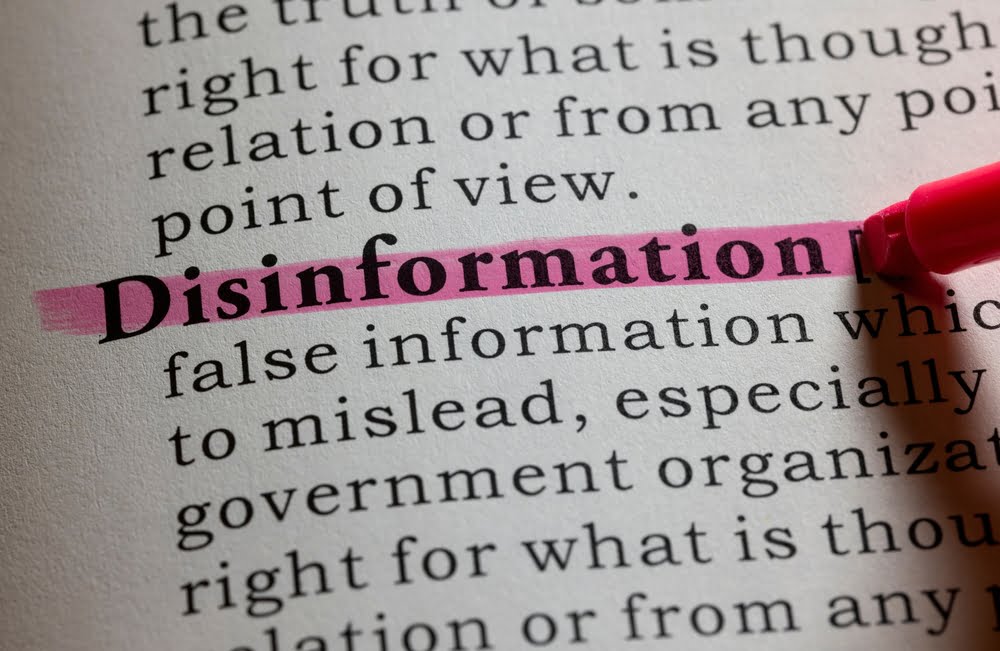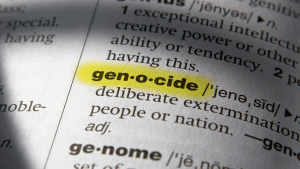Here’s a David and Goliath story that’s worth reading (and a legal case worth following) for two reasons: (1) it roots for the little guy, and (2) it reveals what a bona fide defamation lawsuit looks like.
Prior to the 2020 presidential election, rumors were already swirling about that the election would be rife with fraud. Specific focus zeroed in on vote-by-mail ballots despite the fact that 30 states had been allowing voters to request absentee or mail-in ballots for years.
The suggestion that the election could be stolen due to voter fraud was intentional and based on the premise that if a lie is continuously repeated, people will eventually believe it’s true.
The 2020 voter fraud propaganda even had a name: “The Red Mirage.”
In the days immediately following the 2020 presidential election, votes were still being counted. Despite that, the next day, November 4, Donald Trump declared himself the winner disregarding the millions of ballots that continued to be tallied.
What happened next in Erie, Pennsylvania – depending on who you want to believe – is the stuff movies are made of.
According to the 277 page legal Complaint, on November 5, “Project Veritas published a sensational story: an anonymous whistleblower at the Erie General Mail Facility had stepped forward to reveal that the local, ‘Anti-Trump’ postmaster, Robert Weisenbach, was attempting to sway the 2020 presidential election in favor of then-candidate Joe Biden by illegally backdating ballots.”
The Project Veritas article about the Erie USPS vote-by-mail scandal quickly took on a life of its own. The story was featured on national news broadcasts, including Fox News, social media platforms and was distributed in news publications across the country.
Allegations of spies, recanted affidavits, and conspiracy theories made the story even juicier.
Eventually, the situation in Erie became so turbulent that Weisenbach and his family had to hastily relocate and shelter in place to avoid potential danger from Trump supporters who believed that he had tampered with vote-by-mail ballots. Weisenbach said he actually voted for Trump.
As a side note, O’Keefe and Project Veritas have a long history of questionable escapades that are tied to far right individuals and groups including Jack Posobiec, Steve Bannon and the Proud Boys.
Robert Weisenbach filed a lawsuit naming O’Keefe, Project Veritas and Robert Hopkins – the “whistleblower” – alleging, among other things, defamation.
On Friday, July 15, Judge Marshall J. Piccinini, in the Court of Common Pleas of Erie County, Pennsylvania, overruled preliminary objections, filed by the three defendants, to dismiss the case.
The litigation will move forward.
To date, no proof has ever surfaced to substantiate the claims made by Hopkins, O’Keefe, and Project Veritas that ballots were mishandled by Weisenbach or anyone else at the Erie post office.
Over the course of the last year, three lawsuits were filed in Bucks and Montgomery Counties alleging claims of defamation and similar legal torts. Free speech attorney Garen Meguerian (who authored a three part series for The Beacon and was interviewed about these and similar cases on the Raging Chicken Podcast) provided an overview as to how this type of defamation lawsuit has the potential to be weaponized and utilized as a tool of intimidation for the purpose of silencing critics. There’s an acronym for that: SLAPP (Strategic Litigation Against Public Participation).
Based on claims that cannot be substantiated, Weisenbach’s life was completely turned upside down for months on end. Weisenbach versus Hopkins, O’Keefe and Project Veritas is not a SLAPP, nor is this lawsuit being used to bully anyone; this is an example of what an actual defamation lawsuit looks like.
Weisenbach is represented by Ogg, Murphy and Perkosky of Pittsburgh along with counsel from United to Protect Democracy, Inc., of New York.






